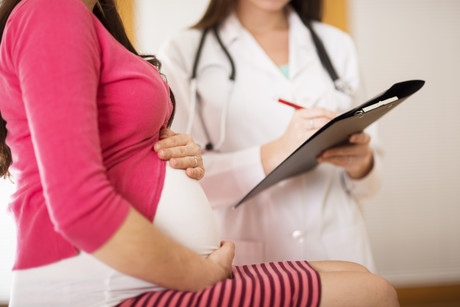Maternal death risk doubles with anaemia

Anaemia in pregnant women poses a great threat to their wellbeing, with pregnant women with anaemia twice as likely to die during or shortly after pregnancy compared to those without the condition.
The finding was made in a major international study led by Queen Mary University of London of over 300,000 women across 29 countries. The research, published in the journal The Lancet Global Health, suggests that prevention and treatment of maternal anaemia must remain a global public health and research priority.
Anaemia, which is characterised by a lack of healthy red blood cells, affects 32 million pregnant women worldwide, and up to half of all pregnant women in low and middle-income countries (LMICs). Women in LMICs are at increased risk of anaemia due to higher rates of dietary iron deficiency, inherited blood disorders, nutrient deficiencies and infections such as malaria, HIV and hookworm.
‘Urgent treatment is now even more important’
Lead author Dr Jahnavi Daru from the Barts Research Centre for Women’s Health at Queen Mary University of London said: “Anaemia in pregnancy is one of the most common medical problems pregnant women encounter both in low- and high-income countries. We’ve now shown that if a woman develops severe anaemia at any point in her pregnancy or in the seven days after delivery, she is at a higher risk of dying, making urgent treatment even more important.
“Anaemia is a readily treatable condition but the existing approaches so far have not been able to tackle the problem. Clinicians, policymakers and healthcare professionals should now focus their attention on preventing anaemia, using a multifaceted approach, not just hoping that iron tablets will solve the problem.”
The largest study of its kind
The study, which is the largest of its kind, looked at World Health Organization data on 312,281 pregnancies in 29 countries across Latin America, Africa, Western Pacific, Eastern Mediterranean and South East Asia. Of these, 4189 women had severe anaemia (a blood count of less than 70 grams per litre of blood) and were matched with 8218 women without severe anaemia.
Previous studies had suggested that anaemia was strongly associated with death, but that this was due to other clinical reasons, and not anaemia directly. This analysis is the first to take into account factors that influence the development of anaemia in pregnancy (eg, blood loss or malaria infection) which may have been skewing the results of previous studies.
The study results showed that when all known contributing factors are controlled for, the odds of maternal death are doubled in mothers with severe anaemia.
The relationship was seen in different geographical areas and using different statistical approaches, which suggests an independent relationship between severe anaemia and maternal death does exist.
Strategies for the prevention and treatment of maternal anaemia include providing oral iron tablets for pregnant women, food fortification with iron, improving access to antenatal care in remote areas, hookworm treatment and access to transfusion services.
The study has limitations including its observational nature meaning that a direct causal relationship between severe anaemia and maternal death cannot be proven, because other factors may come into play.
AdPha welcomes "win for all Australians" PBS news
Advanced Pharmacy Australia has welcomed the announcement that over 400,000 Australians each week...
NSW sees ramping reductions across some of its busiest EDs
Some of NSW's busiest emergency departments have seen significant reductions in hospital...
RACGP calls for obesity-management medication PBS subsidy
Following its new position statement on obesity prevention and management, the RACGP is calling...









